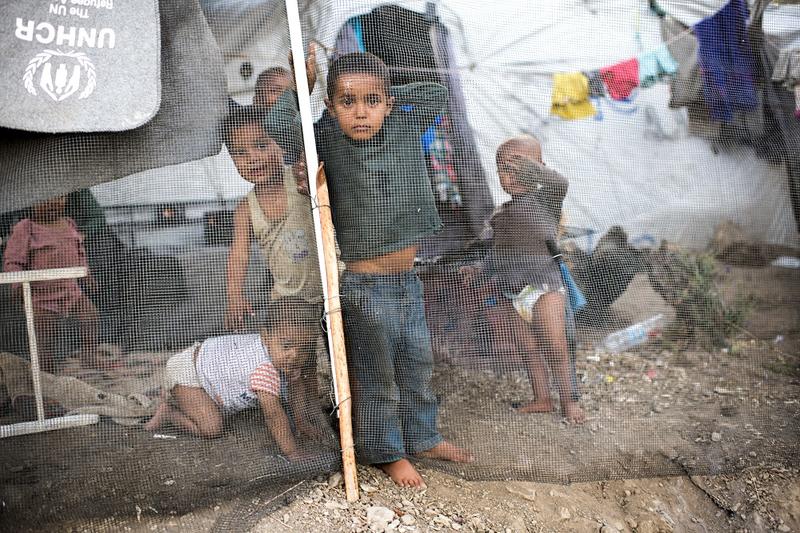How did you arrive on Lesbos island?
I am originally from Palestine, but I was born in Syria. I left because of the war and made my way to Turkey to try to make a new life there, but I couldn’t survive as they don’t speak English, and there was no protection for me. After some time, I decided to cross the sea to try to find a new life in Greece because there was nothing for me in Turkey. I crossed the Aegean Sea at night in a small rubber dingy. There were 45 of us and we were on the sea for seven hours before the Greek Navy picked us up and took us to Lesbos.

Why did you join MSF?
After spending six months in the hotspot camp, Moria, I was given the right to work. I de-cided that I wanted to give back, to help those in need. I felt like I could help because I speak English and Arabic, and because I understand the struggle of people fleeing vio-lence and looking for a better life.
What is your role in MSF?
I’ve been working with MSF for eight months as a health promoter (HP). In general, what we do is educate people who are in the camp about how to keep healthy and hygienic, as well as offer sexual education and promote the services MSF provides. We also offer guid-ance for those who have been victims of sexual violence.
Why do we need HPs in the refugee hotspots?
Health promoters are the first line of MSF. We represent MSF in the field. When people ar-rive from the coast, they are confused. There are many different languages and nationali-ties in the same space, so it’s really important to meet someone who can help, who can offer advice or support them. We guide them on where they need to go and we give them information about the general situation in the camp. I know how difficult it can be because I was once in their position, so I really want to help and support them.

What is the current situation for refugees in Lesbos?
The living conditions in Moria camp are way below acceptable standards. There are over 12,000 people in cramped conditions, many without electricity, clothes or blankets, and it is not safe here. Hygiene is also a big problem, there are not enough toilets or showers and they are in terrible conditions. It is very difficult for people stuck here as they've already been through so much. As always, we call for the evacuation of such vulnerable people, especially women and children, from Moria to safe accommodation.
Where do the people come from, and why did they leave their country?
I work with Arabic speakers, who are mostly from Syria and Iraq, however in the camp people mainly come from the Middle East and Africa. The vast majority have left their country because of war, violence and persecution. I left for the same reasons, so I under-stand what they have been through. Sometimes, our Middle Eastern culture doesn’t allow us to express ourselves immediately to others. So after time and after they gain our trust, they reach out to me to tell me about the problems they faced in their country. From our side, we try to help them and refer them to be housed or to be moved to a safer space.
This interview was first published in MSF's quarterly magazine "Without Borders" .
Download the latest release by clicking here.



